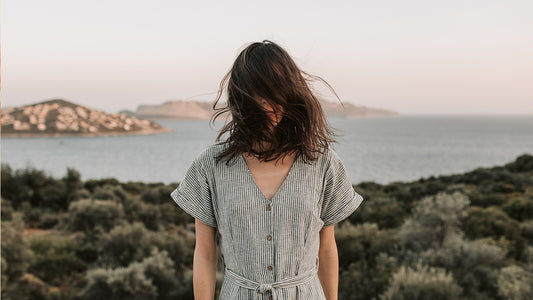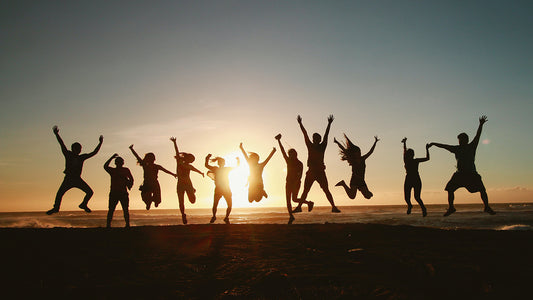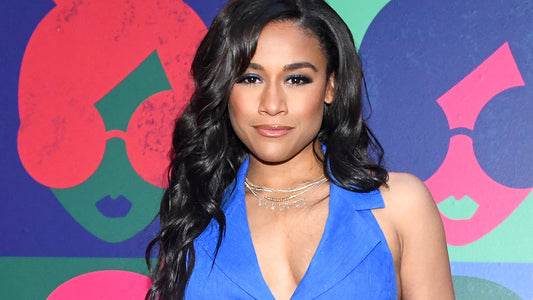
Have you ever watched a nature documentary going, “Wait, how did they even find that animal?” Dan O’Neill knows the feeling. The biologist and host of the new nature show Giants (which you can watch right here!) spent his childhood obsessed with movies about lions, elephants, and whales. “Then when I went to school for it, I realized there’s a big line between narrating what’s happening within an animal community and inventing a story about one,” he says. “There’s a lot of mistrust between scientists and filmmakers, and I see it as part of my job to bridge that trust.”
To do it, the conservationist and LGBTQ+ activist trained at the BBC, where he learned from filmmakers and zoologists how to merge ethics and entertainment. “It’s where Sir David Attenborough makes his films,” Dan says. “And it’s where I learned that you can’t just show up somewhere and make a movie. You have to develop a relationship with nature, and with the people who already live in a community, if you really want to see the truth.”
Here's how Dan filmed Giants, where he wants you to binge watch your next animal movie, and why you need to pack Chanel No. 5 on your next safari.

First things first: The live action Lion King totally counts as an animal documentary, right?
Haaa, no, but I do love it… Actually, when we began making Giants, one of the things we wanted to show was that these beloved animals have their own family structures and dramatic arcs that you don’t have to invent. You just have to observe. If you want to be an animal filmmaker, patience is the first thing you need to develop, because when you try to “make” something happen in nature, it literally won’t. Essentially, nature is the director. Nature gets the final cut!
So you’re not leaving raw steak out in the middle of the jungle and waiting for tigers.
No, that’s really bad! [Laughing.] But did you know, you can use a bird call to attract other birds, or even other animals, into your area? And some people use Chanel No. 5 to attract wild jaguars. I’m not even kidding. There’s something so elemental about that smell. I can’t tell you what it is, but I can say, if you are in a jaguar’s habitat and you need to see it, pour Chanel No. 5 over all your clothes. The jaguar will come.
Okay, so wild cats love French couture. Good to know. What else did you learn while filming?
Do you know what? I always like to imagine myself as this really brave person, and when I got up close with some of these animals, I was really unnerved. Even now, it sounds a bit ridiculous saying it out loud—I’m a biologist! I’m an expert! But African elephants are so powerful. Being on foot next to them, you realize how small you are, and how you’ve really put your hands in the life of this animal. That was something I wasn't prepared for. Also—I know you love animal facts.
Love animal facts.
Well, elephants can communicate in infrasound, which is basically sound frequencies so low, we would never even be able to comprehend them. They can talk to one another over huge, huge distances in sounds that we can't perceive.
Elephants and lions are cool. But why are they important for people who live in different ecosystems?
All animals—definitely megafauna—their fate is linked with ours… In order to save species that we love, we need to think about our own actions. What do we eat? How do we travel? Where do the things we buy come from? Your breakfast is actually intimately linked with the fate of a rhinoceros, even if you’ve never even seen one.

What small steps have you taken in your own life to navigate that?
It’s such a big question, right? We’re the first species that could single-handedly wreck the planet. That’s just true. But we’re also the first species that could—that can—single-handedly save the planet. And that’s amazing… I’m not someone who thinks you can be black-and-white about it, though. For example, although I'm very careful about what I eat, I'm not a vegan; I'm not a vegetarian. I think that those are great options, but they’re not always realistic. So instead of saying, “No meat, ever,” I say, “How can I eat less beef, so there’s less deforestation? How can I ensure that when I travel, I support the local communities, and I make choices that lessen my impact?” And that means everything from getting a reusable coffee cup to attending marches. There’s no “one” way to save the planet! It’s all the ways together.
RELATED: THE BEST TEAM MOVIES ABOUT THE ENVIRONMENT
Most of us won’t get to see “megafauna” like elephants unless we’re at a zoo. How do you feel about that?
That’s another instance where nothing is perfect. Frankly, if we were to close all the zoos right now, where would all those animals go? Also, good zoos fund a huge amount of PhDs and local grassroots organizations, anti-poaching programs, education programs and conservation programs. There are some zoos that are particularly bad and should definitely be shut down. But there are some, like San Diego Zoo, for example, that are doing tremendous work on a global level to advocate for these animals. In a perfect world, we wouldn't need zoos. But the very best ones, the ones that are staffed by scientists with a huge respect for their animals, right now, are so needed. And the wonder of seeing animals up close that you’d never get to… that’s also part of how we can spread a love of nature.
What else should we watch if we love nature?
Well… I mean, look, I’m obsessed with The Last of Us.
Yeah, because The Last of Us is perfect.
Perfect! I’m so obsessed with the fungi on that show, cordyceps. Because even though the show is fiction, it is true that certain fungi can manipulate insects to climb to the highest point in a tree, for instance, so that it's the perfect habitat and humidity for the fungi to take root.
In your opinion, what’s scarier, nature documentaries or horror movies?
Well, we’re not doing any gore or creepy music. But if you watch the “Anacondas” episode of Giants, you’ll probably jump out of your seat. And then just imagine how scary it was to film it! [Laughing.] I’m serious, though. It was terrifying.



